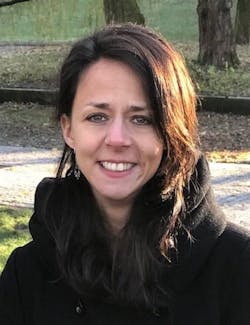Q&A: International Empowerment
Every two years, the International Water Assn. (IWA) organizes the International Young Water Professionals Conference (IYWPC) to provide tangible support to empower young talent in the water sector. The 2017 event was held in Cape Town, South Africa, and drew 320 young water professionals (YWPs). WQP Managing Editor Amy McIntosh asked Kirsten de Vette, learning and capacity development officer for IWA and coordinator of the IYWPC, for more information about the event.
Amy McIntosh: What are the IYWPC’s goals?
Kirsten de Vette: There are plenty of events that are targeted at water professionals worldwide, but none are actually providing the YWPs with the opportunity to showcase and contribute their knowledge in their fields of expertise, whilst at the same time offering professional development opportunities.
The conference objectives are therefore to provide: an accessible and affordable platform for YWPs to network, to generate interdisciplinary and intergenerational dialogue and to exchange good practices and lessons learned; ample professional updating and learning activities for YWPs from all disciplines and organizations; and connections to the water sector (i.e., industry, research, government and [non-governmental organizations]).
McIntosh: How can young professionals get involved with the conference?
de Vette: The conference targets all water-related professionals of 35 years and under, but welcomes more senior water professionals to participate to create intergenerational dialogue and exchange. As a matter of fact, in order to ensure quality, generate intergenerational dialogue and share lessons, the program committee is guided by a senior advisory committee.
There are three levels of involvement. [One is to] be part of the local organizing committee and/or program committee. The uniqueness of IYWPCs is that they are organized by and for young water professionals, so there are approximately 30 to 40 YWPs at the center stage of organizing the conference. The program committee is international, and the local organizing committee mostly [is] based in the country where the conference is held.
The reason for volunteering is that [volunteers] feel empowered to contribute and co-develop, and they develop themselves professionally, building new connections and developing new skills.
The second way to get involved is to answer the call for abstracts (both vocational and academic), workshop proposals and learning sessions proposals. This is the way to contribute to the program and influence the direction of the program.
[The third is] attending, networking and learning. The simplest way of getting involved is attending and participating at the event itself.
McIntosh: How does this event drive innovation?
de Vette: The IYWPC is a conference where young academics bring forward their innovations and new ideas for the first, or sometimes second, time. It is the place to find the young talent, the newest and youngest innovators in the water sector whilst they present their work.
In addition, bringing innovation to practice does not happen without interacting across disciplines, building on what others have done and creating the networks you need to drive your innovation to the market. The IYWPC encouraged multidisciplinary sessions, network gathering and through this stimulating innovators to build the networks they need.
Last but not least, the program committees found the topic of innovation as well as the closely related topic [of] entrepreneurship important. One workshop, therefore, focused on creating a better understanding of innovation and held a long discussion on mapping the innovations done by young professionals attending and beyond. Another workshop focused on entrepreneurship focused on an environmentally friendly approach to building your business (and/or innovation to market).
McIntosh: Why is it important for young people to get involved in the water industry?
de Vette: Worldwide, water resources are under unprecedented pressure. Almost all areas of the globe are facing a future of increased water scarcity at a time of growing demand, from agriculture, industry and ecosystems. The water sector is critical to ensuring a sustainable water future for all, but the sector faces a human resources crisis. To meet the challenges now and in the future requires a huge investment in building and retaining a skilled workforce.
